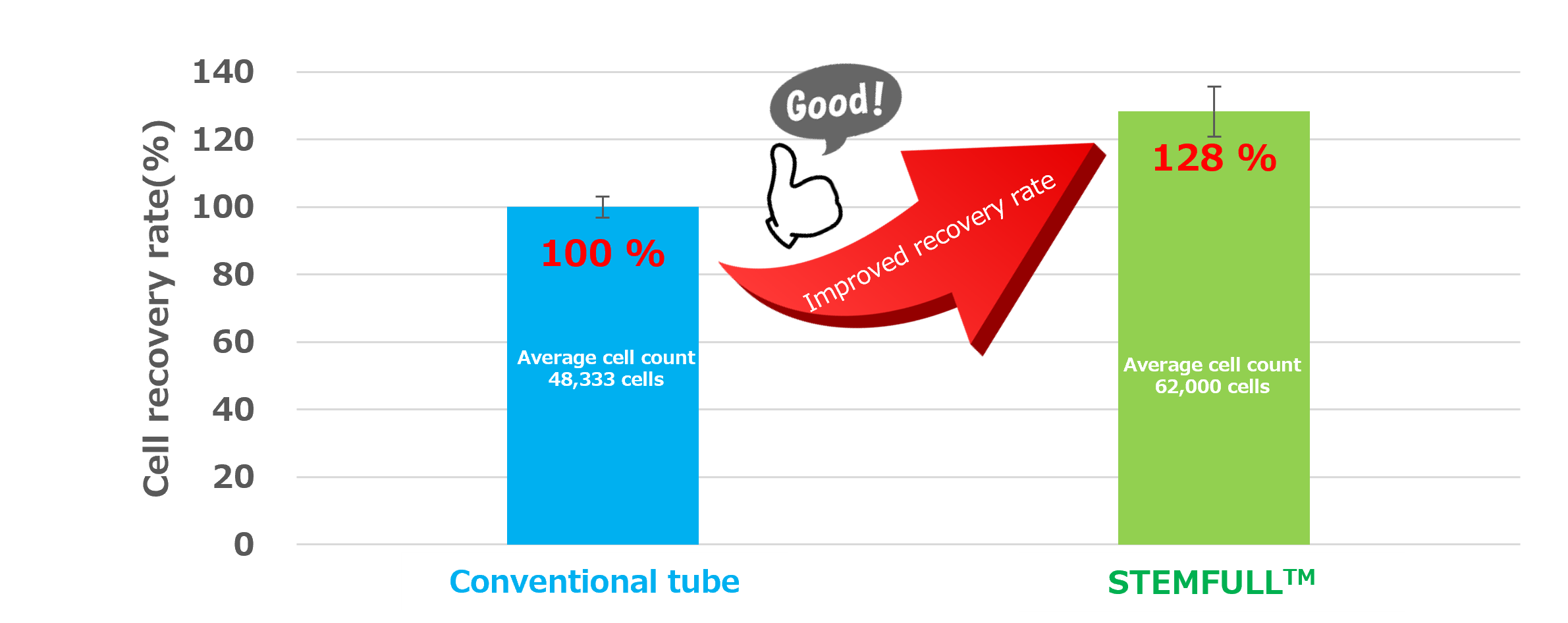
Temperature Resistance: -80°C - 40°C |
[Cell lines published]
|
Organoids and tissues produced by regenerative medicine as an alternative to organ transplantation have been attracting attention in recent years. It is expected that transplantable organoids can exhibit similar functions to native organs and organoid passaging is required to expand functional organs. In the meantime, single-cell analysis of organoids could contribute to understanding of pathogenic mechanisms of diseases such as cancer and the development of new treatment. As organoid research progresses, efficient recovery of valuable cells in organoid passaging and single cell analysis is becoming increasingly important.
Data provided by Professor Toshiro Sato, Department of Medical Chemistry, Keio University School of Medicine
Materials:
Patient-derived small intestine organoids
Stemfull™ tube (MS-90150), Conventional 15mL tube
Method:
The small intestine organoids were dissociated into single cells and the number of cells was counted after washing in serum-free medium.
The recovery rate was calculated by comparing it to 100% recovery in a conventional 15mL tube.

| Cell recovery improvement of adhesive cells |
|---|
